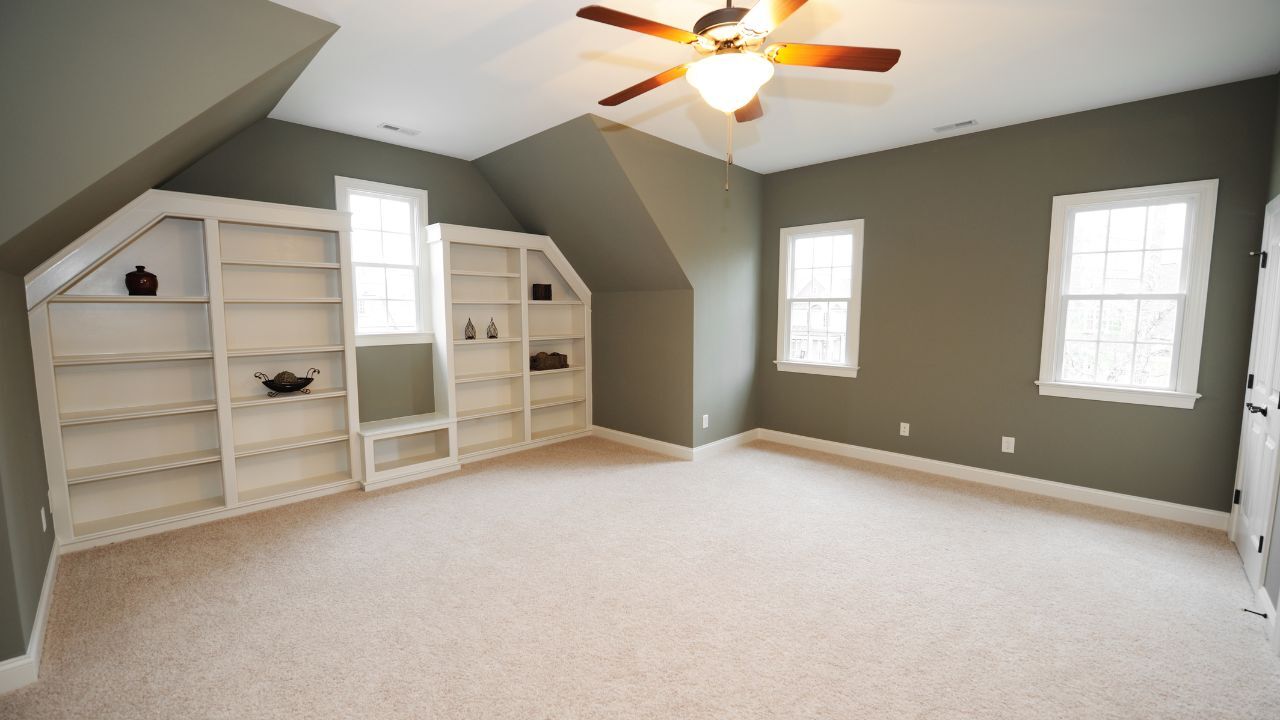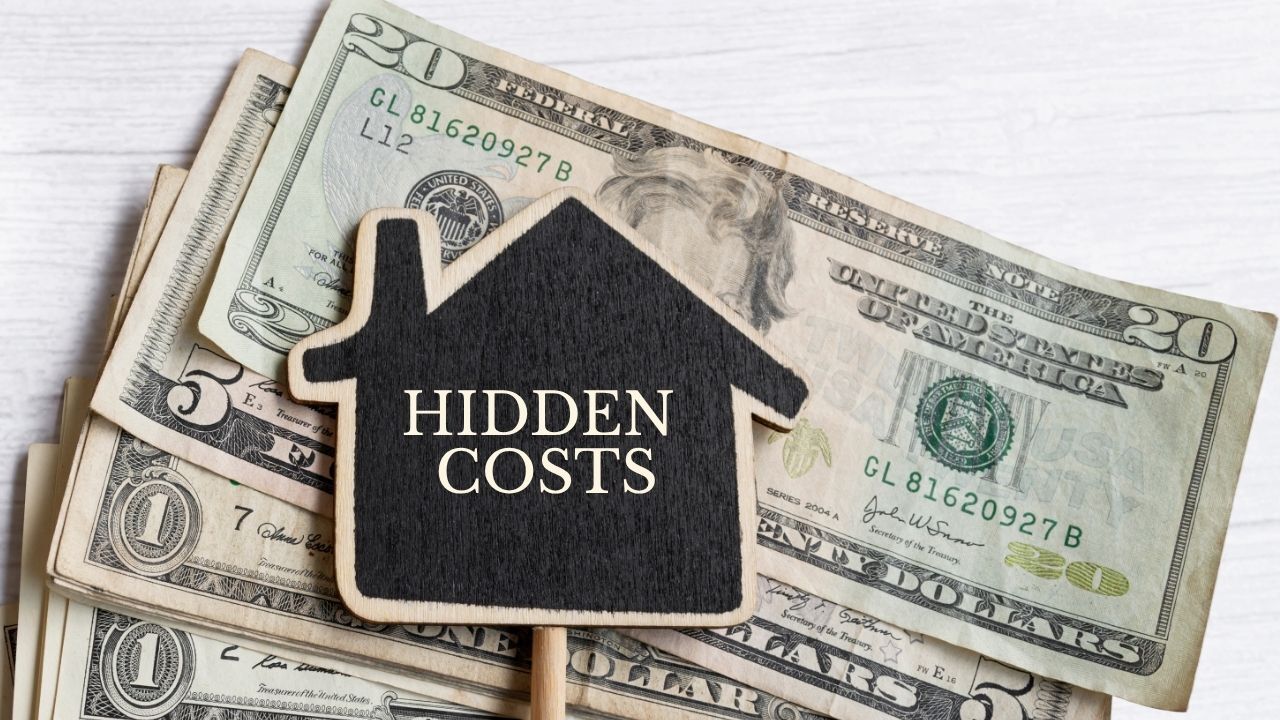 When you are searching for a home, it is easy to get excited about dramatic features like built-in home theaters. They look impressive, they photograph well, and they feel luxurious during a showing. But as real estate professionals, we see something different in day-to-day living.
When you are searching for a home, it is easy to get excited about dramatic features like built-in home theaters. They look impressive, they photograph well, and they feel luxurious during a showing. But as real estate professionals, we see something different in day-to-day living.
Most buyers end up valuing flexible bonus rooms far more than dedicated home theaters. A bonus room can adapt to your changing lifestyle, while a home theater often serves one purpose and one purpose only. Understanding the difference helps you choose a home that supports how you actually live.
Bonus Rooms Adapt as Your Life Changes
The biggest advantage of a flexible bonus room is its ability to grow with you. Today it might be a home office, tomorrow it could be a nursery, guest room, gym, or craft space. As your needs shift, the room shifts with you. Home theaters, on the other hand, are designed for single use. They often require dark rooms, built-in seating, and specialized wiring, which limits how easily you can repurpose the space later.
Buyers Want Multi-Use Spaces, Not Just Entertainment
Most buyers tell us they want space that makes their life easier, not space they only use on weekends. With so many people working remotely or running side businesses, bonus rooms quickly become one of the most valuable parts of a home. They offer flexibility for work, hobbies, or extra storage. Home theaters are fun, but they rarely make the top of the must-have list for practical buyers who prioritize everyday functionality.
Home Theaters Can Be Expensive to Update or Remove
A dedicated theater room sometimes requires upgrades, repairs, or removal to make it functional for another purpose. The built-in risers, heavy wiring, dark paint, and specialty lighting can be costly to undo. Buyers often see them as projects instead of perks. A bonus room, however, is a blank canvas. With neutral flooring and standard electrical layouts, it can be transformed quickly without major renovation costs.
Flexible Rooms Improve Your Home’s Resale Appeal
Because bonus rooms work for almost any lifestyle, they appeal to a much wider range of buyers. A family may want a playroom, a couple may want a gym, and a remote worker may want an office. A single-purpose home theater only appeals to a small percentage of buyers. When a room can meet multiple needs, it adds real value and increases your home’s marketability when you decide to sell.
Bonus Rooms Support Everyday Living
At the end of the day, your home needs to work for your daily routine. Flexible rooms create space for the things that matter most. Whether you need a quiet work area, a spot for kids to play, or a peaceful place to unwind, a bonus room gives you long-term freedom. Home theaters offer entertainment, but bonus rooms offer convenience and comfort every single day.
Choosing a home with a flexible bonus room gives you more versatility, more value, and more long-term usefulness than a dedicated home theater. It is the kind of space that adapts with your life, supports your routine, and makes your home feel truly functional.
 Buying your next home is an exciting milestone, but it also comes with important financial decisions. Whether you are upgrading, downsizing, or relocating, preparation is key. Market conditions evolve, lending standards change, and personal finances shift over time. These seven essential tips will help you approach the process with clarity and confidence.
Buying your next home is an exciting milestone, but it also comes with important financial decisions. Whether you are upgrading, downsizing, or relocating, preparation is key. Market conditions evolve, lending standards change, and personal finances shift over time. These seven essential tips will help you approach the process with clarity and confidence. Buying a home is already a major decision, but when you are navigating a shared custody schedule, the process becomes even more personal and complex. Location, school boundaries, commute times, and daily logistics all play a larger role in your home search.
Buying a home is already a major decision, but when you are navigating a shared custody schedule, the process becomes even more personal and complex. Location, school boundaries, commute times, and daily logistics all play a larger role in your home search. Older homes have charm, character, and architectural details that newer properties often lack. From original hardwood floors to vintage craftsmanship, they can feel timeless and full of personality. However, behind the charm can come age-related challenges that buyers should not overlook. Understanding how to budget for repairs and updates helps buyers make informed decisions and protects their investment long after closing.
Older homes have charm, character, and architectural details that newer properties often lack. From original hardwood floors to vintage craftsmanship, they can feel timeless and full of personality. However, behind the charm can come age-related challenges that buyers should not overlook. Understanding how to budget for repairs and updates helps buyers make informed decisions and protects their investment long after closing. A home inspection is one of the most important steps in the home buying process. It gives buyers a clear picture of the property’s condition and can uncover issues that are not visible during a showing. From roofing problems to electrical concerns, an inspection helps ensure you know exactly what you are purchasing. However, once the report arrives, the next step, and negotiating repairs, can feel overwhelming.
A home inspection is one of the most important steps in the home buying process. It gives buyers a clear picture of the property’s condition and can uncover issues that are not visible during a showing. From roofing problems to electrical concerns, an inspection helps ensure you know exactly what you are purchasing. However, once the report arrives, the next step, and negotiating repairs, can feel overwhelming. Buying a home is one of life’s biggest milestones, but it also comes with ongoing responsibilities that many first-time buyers overlook. The purchase price and mortgage are only part of the picture. Once the excitement of closing day fades, new homeowners often discover a range of hidden costs that can affect their monthly budgets and long-term financial stability.
Buying a home is one of life’s biggest milestones, but it also comes with ongoing responsibilities that many first-time buyers overlook. The purchase price and mortgage are only part of the picture. Once the excitement of closing day fades, new homeowners often discover a range of hidden costs that can affect their monthly budgets and long-term financial stability.